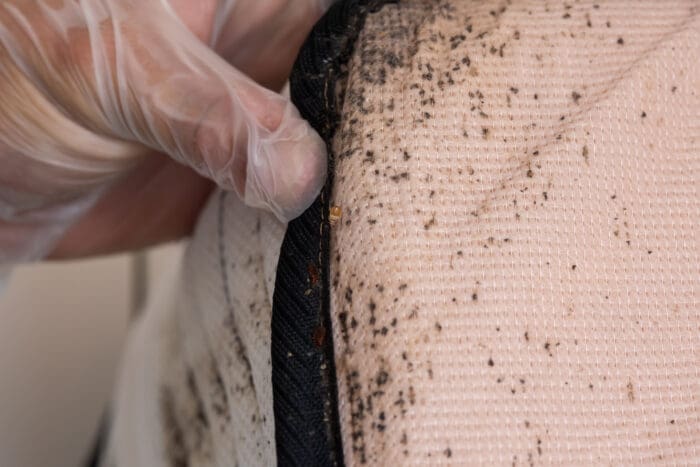
Date Posted:
September 5, 2023
Post Author
Andres Beregovich
Categories
A frequent medical treatment called venous surgery is used to treat a number of vein-related disorders. Even while many venous procedures are successful, mistakes can happen occasionally, which can cause pain, suffering, and long-term consequences for the patient. It’s crucial to understand your rights and the steps you can take to pursue justice if you or a loved one in Florida has suffered from a botched venous operation. In this blog post, we’ll guide you through filing a medical malpractice claim in Florida.
Recognizing Medical Negligence in Cases of Venous Surgery
It’s important to understand medical negligence in the context of venous surgery cases before diving into the legal issues. When a healthcare professional fails to give the patient the standard of care anticipated in their profession, it is considered medical negligence. This could involve mistakes like the following in the context of venous surgery:
- An incorrectly diagnosed venous problem can result in needless surgery or the wrong procedure.
- Performing the procedure incorrectly and harming the veins, nerves, or adjacent tissues are surgical errors.
- Failing to give adequate post-operative care can result in infections or blood clots.
- Surgeon’s failure to be approved to perform Level II office-based surgery for procedures involving general anesthesia in the office-based setting.
You must prove the following components to prove medical negligence:
- You are owed a duty of care by the healthcare professional.
- By providing subpar care, the provider violated that obligation.
- The duty violation directly brought on your injuries or problems.
- The end result was that you were hurt.
Collecting Data to Back Up Your Claim
It takes convincing evidence to make a case for medical malpractice. Here are some critical information to obtain to back up your claim:
- Medical Records: Obtain copies of your medical information, including pre-and post-operative notes, pre-operative evaluations, and surgical notes. These records can serve as evidence of any deviations from the accepted level of treatment.
- Expert Advice: Speak with a surgeon who specializes in vein surgery. They can examine your case and offer a professional assessment of whether the standard of care was violated. In court, their evidence is helpful.
- Photographic Proof: If feasible, take pictures of the surgery site, any complications, or other apparent signs of carelessness. In court, these images can be convincing.
- Witness Statements: Obtain comments from witnesses who were present during your procedure or who saw how you were treated after that. They could offer insightful testimony.
- Maintain Evidence: Ensure all pertinent evidence, such as medical tools or samples, is maintained. This could be very important in demonstrating your point.
Consulting an Experienced Personal Injury Attorney
Legal knowledge is necessary to negotiate the complicated world of medical negligence lawsuits successfully. Speaking with a personal injury lawyer with experience in medical negligence claims is crucial. Here are some ways that a lawyer can help you:
- Case Evaluation: To ascertain whether you have a strong claim, your lawyer will review the specifics of your case, including the evidence you’ve obtained.
- Legal Plan: Based on your unique circumstances, they will develop a legal plan outlining the measures required to pursue your claim.
- Expert Witnesses: Lawyers have access to a network of medical professionals who can testify in favor of your claim.
- Negotiation: To reach a fair settlement, your attorney will speak with the legal counsel for the healthcare or insurance provider. Before going to court, many matters are settled by discussion.
- Legal Representation: A judge and jury will hear your case in court if a settlement cannot be reached. Your lawyer will represent you there.
Starting a Legal Process and Filing a Lawsuit for Medical Malpractice
If settlement talks fall short of your expectations, you should start a formal legal procedure by filing a medical malpractice case. The essential steps are as follows:
- Presuit Compliance: The claimant must comply with Florida Statutes Chapter 766, Medical Malpractice Statutes.
- Complaint: Your lawyer will submit a complaint detailing the specifics of your case, such as the claimed carelessness, injuries suffered, and compensation sought.
- Discovery: The parties share data and supporting materials during the discovery phase. This covers demands for documents, interrogatories, and depositions
- Expert Witness Testimony: Expert witnesses may be deposed, and their testimony is crucial throughout the trial.
- Mediation: The court may frequently order mediation to make one more try at a resolution before moving on to trial.
- Trial: Should a settlement not be reached, your case will be tried in court. The defense team for the healthcare provider will make their case, and your attorney will make yours.
- Verdict: Either the plaintiff (you) or the defendant (the healthcare provider) will get the judge’s or jury’s decision.
- Appeals: They may do so if the ruling is unacceptable to either party.
It can be difficult to pursue justice for a failed venous operation, but with the correct counsel and a strong case, you can fight for the compensation you are due. Please don’t hesitate to speak with a knowledgeable personal injury attorney in Florida if you have suffered issues due to medical malpractice to discuss your legal options. Contact the Beregovich Law Firm for more details and a free consultation today.






